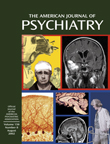Dr. Patel Replies
To the Editor: Thank you for the opportunity to respond to Dr. Saravanan. As for his first point, I completely agree that the Edinburgh Postnatal Depression Scale is a screening measure, and like all screening measures, has imperfect sensitivity and specificity. We acknowledged this point in an earlier version of the article, but we removed it when we revised it for length. I should point out, however, that despite the Edinburgh Postnatal Depression Scale being a screening measure, it remains the most widely used case measure in epidemiological studies of postnatal depression. The cutoff score used in Goa, India, was validated against that of a structured psychiatric interview.
The author’s second point seems to be an interpretation of the meaning of the associations we reported between risk factors such as low level of education and postnatal depression. His view seems fairly plausible but does not mean that our interpretation was incorrect.



